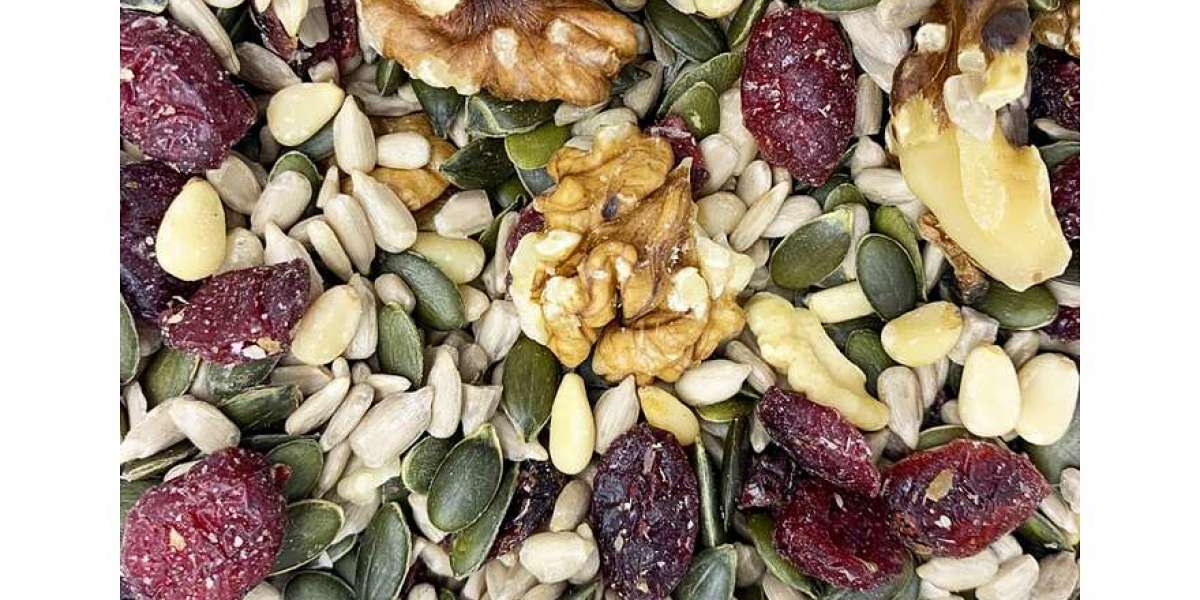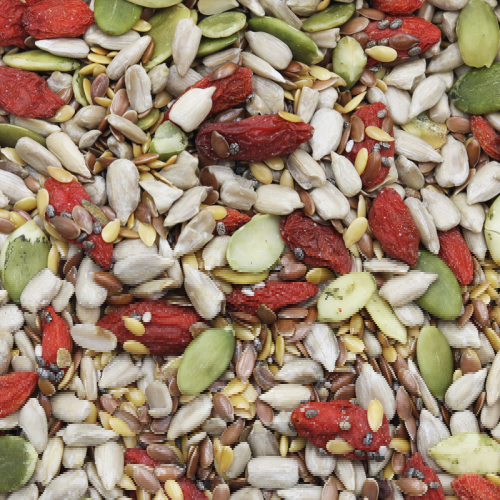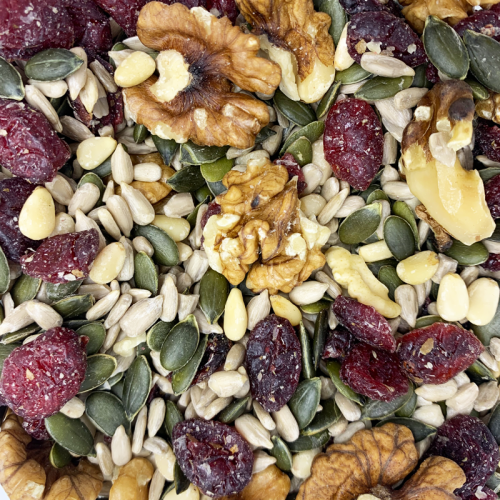Seeds have been an essential part of the human diet for centuries. Packed with nutrients, they offer numerous health benefits and can be easily incorporated into a wide range of dishes. At Grape Tree, we believe in the power of seeds and their ability to improve our well-being. In this article, we'll explore the different types of seeds available at Grape Tree, their health benefits, and how you can add them to your daily diet.
Why Are Seeds Good for You?
Seeds are tiny powerhouses of nutrition. They are rich in healthy fats, protein, fibre, vitamins, and minerals. Including seeds in your diet can help support heart health, boost your immune system, and provide essential nutrients that your body needs. Seeds are also versatile and easy to add to meals, making them a convenient way to enhance your diet.
Types of Seeds Available at Grape Tree
At Grape Tree, we offer a wide variety of seeds that cater to different tastes and dietary needs. Here are some of the most popular types of seeds you can find on our website:
1. Chia Seeds
Chia seeds are small, black or white seeds that come from the Salvia hispanica plant. They are incredibly rich in omega-3 fatty acids, fibre, protein, and antioxidants. Just one serving of chia seeds can provide a significant amount of your daily fibre intake.
Health Benefits of Chia Seeds:
Improve digestive health due to their high fibre content.
Support heart health by providing omega-3 fatty acids.
Help in weight management by keeping you fuller for longer.
How to Use Chia Seeds: Chia seeds are incredibly versatile. You can add them to smoothies, yogurt, oatmeal, or even make chia pudding by soaking them in milk or a dairy-free alternative.
2. Pumpkin Seeds
Pumpkin seeds, also known as pepitas, are flat, oval seeds that are packed with nutrients. They are an excellent source of magnesium, iron, zinc, and antioxidants.
Health Benefits of Pumpkin Seeds:
Promote heart health by providing magnesium and healthy fats.
Improve sleep quality due to their high tryptophan content, an amino acid that helps in producing serotonin.
Support prostate health, particularly in men.
How to Use Pumpkin Seeds: Pumpkin seeds can be eaten raw, roasted, or added to salads, granola, or baked goods for an extra crunch. They also make a great snack on their own!
3. Sunflower Seeds
Sunflower seeds are the edible seeds of the sunflower plant. They are a good source of healthy fats, protein, fibre, and several vitamins and minerals, particularly vitamin E and selenium.
Health Benefits of Sunflower Seeds:
Protect cells from damage due to their high antioxidant content.
Support skin health with vitamin E.
Promote healthy cholesterol levels.
How to Use Sunflower Seeds: Sunflower seeds can be sprinkled over salads, mixed into trail mixes, or used in baking. They also make a delicious topping for yogurt or oatmeal.
4. Flaxseeds
Flaxseeds, also known as linseeds, are small, brown or golden seeds that are rich in fibre, protein, and omega-3 fatty acids. They are also an excellent source of lignans, which have antioxidant properties.
Health Benefits of Flaxseeds:
Support heart health by providing omega-3 fatty acids.
Aid in digestion due to their high fibre content.
Help balance hormones, particularly in women, thanks to their lignan content.
How to Use Flaxseeds: Flaxseeds can be added to smoothies, oatmeal, or yogurt. For the best nutritional benefits, it's recommended to use ground flaxseeds as whole flaxseeds can pass through the digestive system without being absorbed.
5. Sesame Seeds
Sesame seeds are tiny, oil-rich seeds that come in a variety of colours, including white, black, and brown. They are a good source of protein, healthy fats, and several vitamins and minerals, particularly calcium and magnesium.
Health Benefits of Sesame Seeds:
Support bone health due to their high calcium content.
Provide antioxidants that help protect the body from free radical damage.
Aid in lowering cholesterol levels.
How to Use Sesame Seeds: Sesame seeds can be sprinkled on salads, stir-fries, and baked goods. They are also a key ingredient in tahini, a popular paste used in Middle Eastern cuisine.
Tips for Adding Seeds to Your Diet
Adding seeds to your diet is easy and can significantly boost your nutrient intake. Here are some simple tips to get started:
Mix into Breakfast: Add seeds to your morning oatmeal, cereal, or yogurt for an extra nutritional punch.
Bake with Seeds: Incorporate seeds into bread, muffins, or pancake batter for added texture and nutrients.
Top Your Salads: Sprinkle seeds over salads for added crunch and flavour.
Blend into Smoothies: Boost the nutritional content of your smoothies by adding a spoonful of seeds.
Conclusion
Seeds are an excellent addition to any diet, providing a wide range of nutrients that support overall health. At Grape Tree, we offer a variety of high-quality seeds to suit all your dietary needs. Whether you're looking to improve your heart health, boost your immune system, or simply add more nutrients to your meals, our selection of seeds has something for everyone. Explore our range of seeds today at Grape Tree and start reaping the benefits of these tiny nutritional powerhouses!










